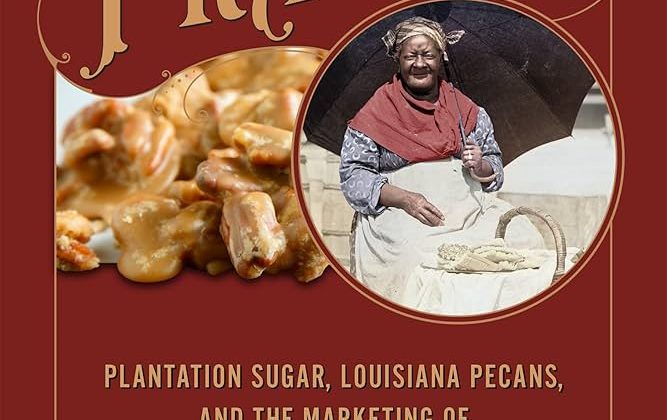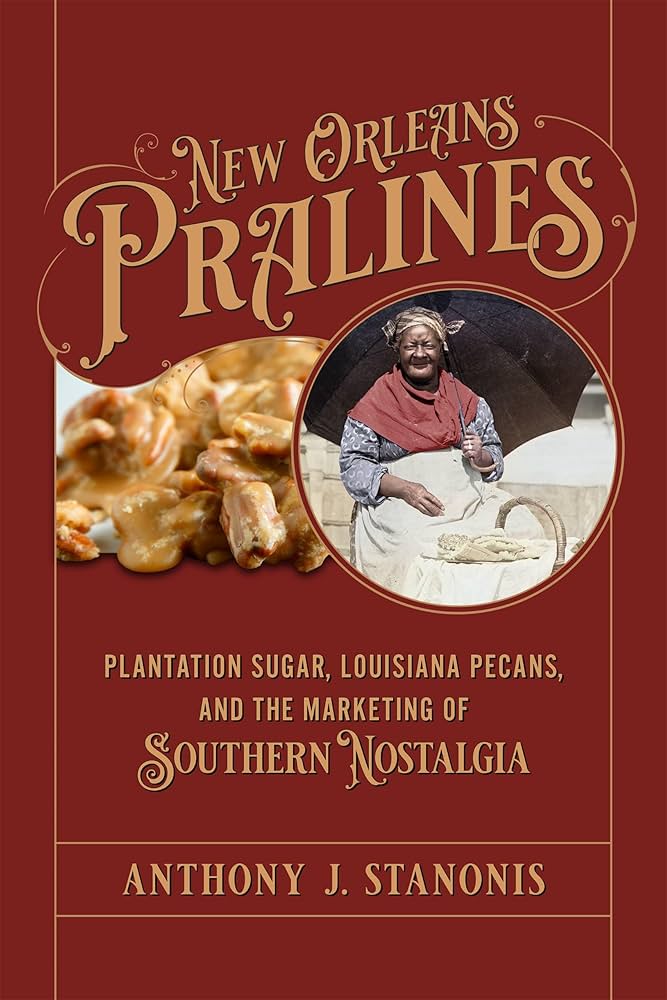

Anthony J. Stanonis is an independent historian of the American South. This interview is based on his new book, New Orleans Pralines: Plantation Sugar, Louisiana Pecans, and the Marketing of Southern Nostalgia (LSU Press, 2024).
JF: What led you to write New Orleans Pralines?
AS: I’m a native New Orleanian who has long been interested in tourism and foodways in the American South. Back in 2017, I was prepping an article on the history of the praline but soon discovered that the traditional narrative of the praline coming from France wasn’t true. The first two cookbooks on New Orleans, both from 1885, didn’t even contain a recipe! I realized I had stumbled onto a more complicated story. I quickly learned from my research that the origins of the praline, called a “plarine” among French Louisianans during the 1800s, pointed to the enslaved on sugar plantations as the confection’s creators. After the Civil War, a few entrepreneurial African American women who abandoned the plantations introduced pralines to New Orleans as a high-calorie, nutrient-rich street food that initially powered black workers along the levee and elsewhere. How that then became the romanticized souvenir celebrated today fascinated me!
JF: In 2 sentences, what is the argument of New Orleans Pralines?
AS: The praline embodied the survival skills of the enslaved and, later, the entrepreneurial efforts of emancipated African American women who took to street-selling pralines in the late 1800s. For white Americans, however, the New Orleans praline and the Black sellers during the Jim Crow era became romanticized symbols of the Old South, as represented by the brown sugar of Louisiana’s plantations, even while the confections simultaneously heralded a modern New South, a represented by the emerging pecan industry.
JF: Why do we need to read New Orleans Pralines?
AS: Far from a quaint souvenir of New Orleans, the praline tells a range of stories about New Orleans, the South, and Americans in general. It reveals the ingenuity of the enslaved and the entrepreneurial spirit among the emancipated, providing an opportunity to recover the lives of working-class Black women during the late 1800s and early 1900s. It reflects white southerners’ fantasies about the Lost Cause and Jim Crow but also their push to modernize the region through diversified agriculture and tourism. Most importantly, the book shows how myths – in this instance the tale of the praline as rooted in French nobility – are created and why, while also demonstrating how a simple food item can convey a multitude of purposes and meanings.
JF: Why and when did you become an American historian?
AS: My family surrounded me with living history from the time I was born. My grandfather passed through the gates of Ellis Island as an immigrant from Lithuania and lived to 98-years-old. He served with the US Army Air Corps in France during WWI. My mother is from Germany. My dad enlisted in the US Air Force and was in Vietnam during the Tet Offensive. I had uncles who fought in France in WWII and in the Korean War. Growing up in New Orleans, I was even more immersed in history. Researching the past is very much about understanding how I got here! I became a history major at Loyola University New Orleans and then went on to get my PhD at Vanderbilt University.
JF: What is your next project?
AS: I’m currently working on two projects. I am researching a cultural history of voodoo. I trace the misguided association of this religious practice with evil since the 1800s and, following the rise of jazz in the 1920s, the conflicting, positive association of voodoo with youthful rebellion and fun. My other project that I have started writing is a history of fire departments, urban growth, and the role of race in the American South during the 1800s.
JF: Thanks, Anthony!